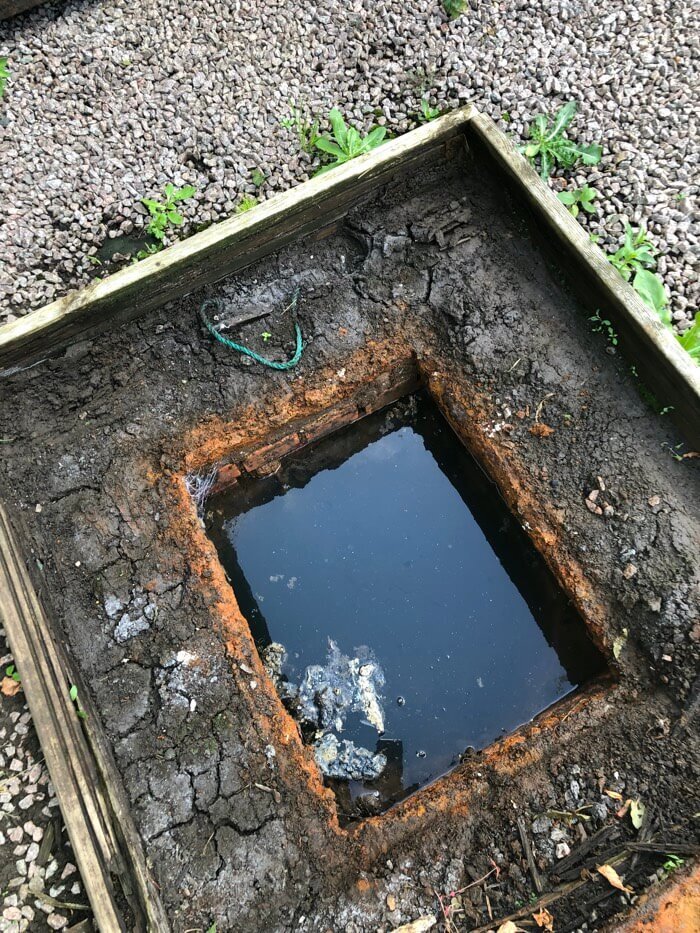Signs That Your Septic System is About to Fail
If your home is not connected to a mains sewer system, you’ll likely have a septic tank or treatment plant. Properties rely on drainage systems on a day-to-day basis and whilst mains sewers are maintained by the local water companies, it is the responsibility of the homeowner to arrange septic tank/treatment plant emptying and/or maintenance.
Far from being systems that can simply be left to their own devices, septic tanks/treatment plants need to be emptied regularly. In “normal” circumstances annually is suffice. You should only have these emptied by companies who are licensed to do so. It is essential to know when they’re necessary so that you can contact the experts at the right time. After all, even a slight oversight could have disastrous consequences and if you let septic tank maintenance tasks fall by the wayside for too long, it could be too little too late.
So, to prevent your septic tank from creating a domino effect of disaster throughout your household and potentially to the environment, we’ve made a list of some tell-tale signs that it could be on the brink of failing.
There’s also a list of things you can do to prevent septic tank problems from cropping up.
Slow draining toilets and sinks
Whilst a problem with one or two drains in your home could simply signify a blocked pipe, if all your toilets and sinks are draining slowly, the entire septic system is probably backed up. In addition to bringing all of your plumbing to a standstill, a backup of sewage will likely be putting a lot of pressure on your septic tank, so it’s essential to get this seen to by a professional to prevent the issue from worsening.
A septic tank can become backed up for many reasons. It could be the result of groundwater back flowing into the tank or even a treatment plant that has stopped functioning. Either way, the importance of spotting the signs promptly and keeping up with regular emptying of your tank cannot be overstated. If not fixed promptly, a backed-up septic tank is likely to cause unpleasant smells, prevent you from using your facilities and could also lead to the system overflowing, which could, in turn, lead to water contamination.
Unusual sounds and sewage smells
Unusual sounds or smells coming from anything is never likely to be a good sign, and septic tanks are no exception. If you hear gurgling sounds coming from pipes or pick up on foul-smelling odours around the location of the septic tank, this is a likely indication of a blockage or sewage backup.
Water pooling near your septic tank
Although your garden is likely to have a few puddles after a rainstorm and in the wetter months, if you notice significant pooling around your septic tank, this could be a cause for concern. A pool of liquid is likely to mean that your septic tank is overflowing which is never good news as it means untreated sewage is leaking into your garden. This is likely a sign that septic tank emptying is needed or it could mean that your drainage field isn’t functioning as it should.
Now that you’re aware of the most common red flags to look out for, it’s important to know what you can do to keep your septic tank in tip-top condition. Some tips include:
Monitoring your system closely
One of the best ways to look after your septic tank is to be constantly on the alert for the above-mentioned problems. Checking the ground around your septic tank every once in a while will give you peace of mind that it’s not showing signs of leaking and, if there is a problem, you can contact a septic tank expert in good time.
Regular pumping
Rather than waiting until you notice signs of trouble, it’s important to have your septic tank pumped out regularly. Routine pumping will help prevent your septic tank from failing and will help it to function at optimum efficiency. When it comes to how often a septic tank needs to be pumped, this will largely depend on the size of your home and the amount of demand that’s put on the system. However, if you’re unsure, this is something that a septic tank expert will be able to advise on.
Keeping track of maintenance
A septic tank requires c emptying periodically and by keeping a record of all maintenance that has been carried out, you’ll be able to accurately assess when your septic tank is next due a visit from a professional. Any paperwork related to your septic tank should be stored away for future reference as this will ensure it’s getting the correct amount of maintenance. Plus, if you ever decide to vacate your property, it’s helpful to keep hold of this information for future owners.
Relying on a team you can trust
Finally, to ensure your septic tank stands the test of time, it’s essential to find a maintenance company you can trust. From providing a range of septic tank services to delivering great customer experience, many different aspects contribute towards a fantastic septic tank service. So, once you’ve found a business you can rely on, have their contact details at the ready so that, in the event of a septic tank emergency, you know exactly who to call.
Whether you have a blocked drain or a septic tank that needs emptying, contact the experts at Mitchell & Mayle Ltd. We can advise as to how often your tank should be emptied and offer a free service where we contact you when it is due an empty, taking the pressure of remembering to book this service away from yourself.


